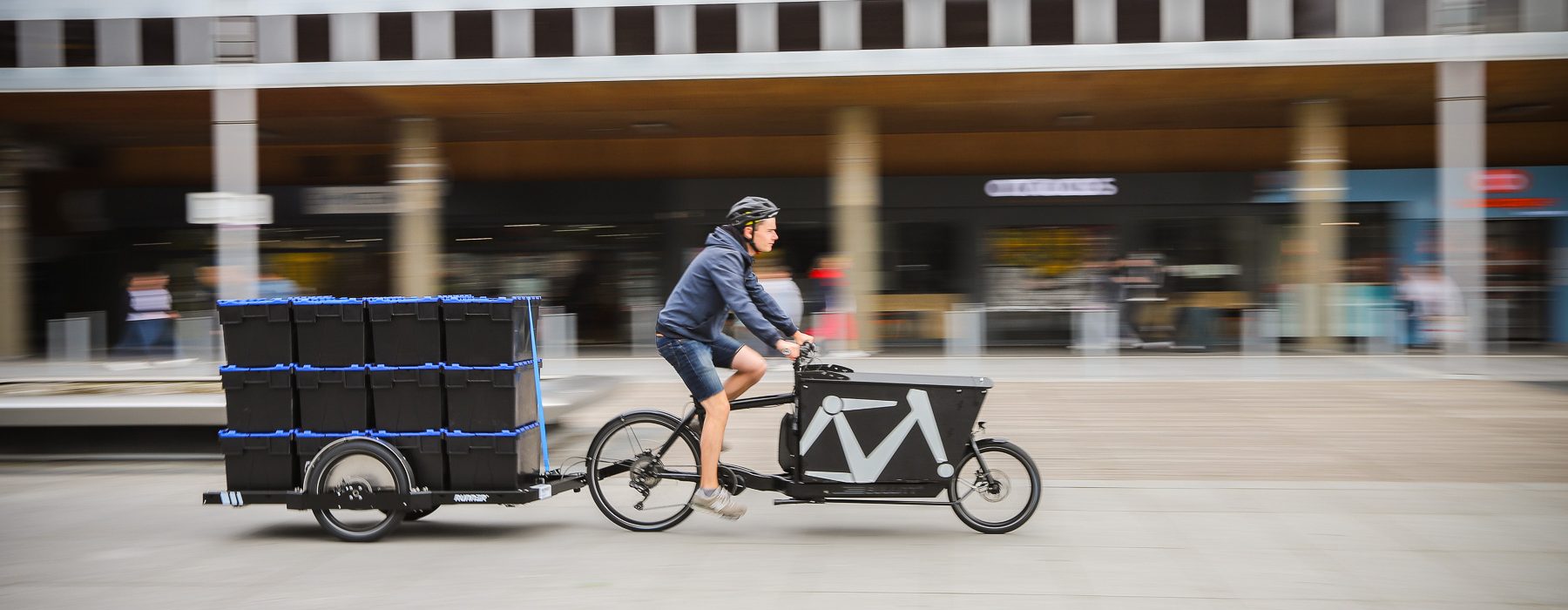
Today, 1 September, sees the start of “DECARBOMILE”, the first project at Hamburg University of Technology to be part of the European Commission Horizon Europe Programme.
The EU Green Deal sets out to reduce carbon emissions from transport by at least 55% by 2030, compared to 1990 levels. Despite its low share of the total distance, the last mile – for instance delivering a packet to a client’s house or business – is responsible in EU member states for 30% of total carbon emissions from transport. And so there is increasing pressure to make the transport of goods more sustainable and environmentally friendly. Scientists from Hamburg University of Technology are examining whether ideas for carbon-free logistics during the first or last mile qualify as technically, ecologically and also economically positive. Together with 31 partners from ten different countries, they are part of the “DECARBOMILE” project (Five pillars to DECARBOnize the last MILE logistics). The initiative is being funded for four years by the European Commission’s Horizon Europe Programme.
The goal of the scientists from the Institute for Transport Planning and Logistics and the other partners involved is to develop and implement delivery concepts for the first and last mile. The idea is to use new logistics nodes, such as urban hubs, and alternative modes of transport, such as carbo bikes or ships, as well as optimised routing. The relations with and between stakeholders will be facilitated by the creation of a collaborative urban consolidation logistics framework that will include a digital platform, methodologies for collaboration, and ICT and IoT tools. The concepts will be tested in the four so-called living labs in Hamburg, Nantes (France), Logroño (Spain) and Istanbul (Turkey). In the living labs, the researchers will work together with local players from society, policy-makers and business to learn about their needs and behaviours and to develop suitable concepts. Elements of the solutions developed will be trialled in a first step in four so-called “satellite cities”, Tallin (Estonia), Getafe (Spain), Ghent (Belgium) and Sarajevo (Bosnia and Herzegovina), and subsequently implemented in the living labs.
Professor Irina Smirnova, Vice-President Research at Hamburg University of Technology welcomes the project: “The Horizon Europe Programme is the most important EU funding programme for research and innovation. And so I am delighted by the start of the DECARBOMILE project and the associated success for Hamburg University of Technology. The project is an ideal fit for our university’s strategic initiative “Engineering to Face Climate Change” and strengthens our cooperation in Europe and the international visibility of the university.”
About Horizon Europe
Horizon Europe is one of the world’s largest funding programmes for research and innovation. It focuses on important societal issues such as health, sustainable development and digitalisation. A central goal is to promote European scientific excellence.
(Photo: Fleximodal www.fleximodal.fr / Source: TU Hamburg press release)
Contact for the media
TUHH – Press office
Franziska Trede
Email: franziska.trede@tuhh.de
Tel: +49 40 428 78 3458
Jochen Kilian
Communication & Marketing, TUTECH
Tel: +49 40 76629-6121
Fax: +49 40 76629-6129
Email: kilian@tutech.de
